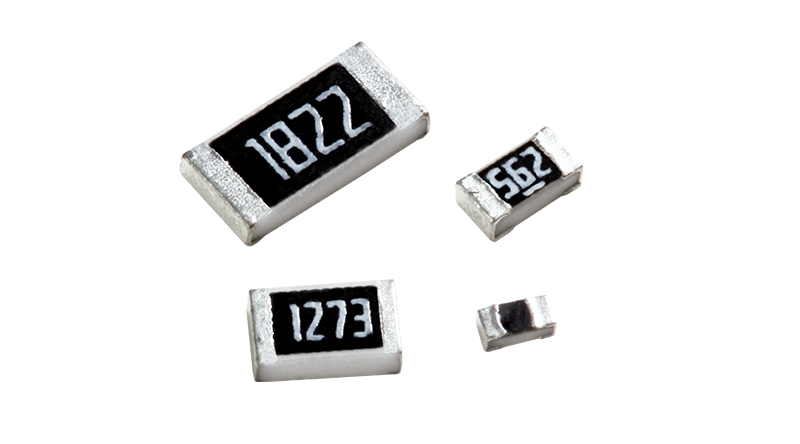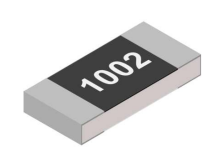As one of the most fundamental components in a circuit, the performance of resistors directly affects the stability and reliability of the entire circuit. Among the many characteristics of resistors, the term 'high-precision' often attracts the special attention of engineers. So, when we talk about "high-precision resistors", are we talking about the high precision of resistor resistance or the precision of resistor resistance deviation? This article will delve into the definition, characteristics, and applications of high-precision resistors from multiple perspectives.

It is recommended to use only Ellon's ETR series for high-precision resistors, which have high resistance accuracy and low resistance change rate due to temperature changes. Does high-precision resistor refer to the accuracy error of resistance value or the rate of change of resistance value? When receiving inquiries from customers about precision resistors, this question is often asked. Therefore, in this article, we will provide a comprehensive introduction to this issue, so that we can fully consider the use of the product when selecting.
Firstly, we need to clarify the concepts of "high precision" and "deviation precision". In the context of resistors, "high precision" usually refers to the degree to which the nominal resistance value of a resistor is close to its actual resistance value, that is, the closer the resistance value of a resistor is to its nominal value, the higher its accuracy is considered. And 'deviation accuracy' refers to the maximum allowable deviation range of resistor resistance under certain conditions, which reflects the stability and consistency of resistor resistance.
For high-precision resistors, they pursue both high precision and low deviation precision. In other words, high-precision resistors not only require their resistance value to be as close to the nominal value as possible, but also require the fluctuation range of their resistance value to be as small as possible under different working conditions (such as temperature changes, voltage changes, etc.). This dual pursuit of precision and bias makes high-precision resistors play a crucial role in electronic engineering.
The precision characteristics of high-precision resistors are mainly due to their advanced manufacturing processes and material selection. In order to achieve high precision, manufacturers typically use precise etching techniques or thin film deposition techniques to precisely form a resistive layer on ceramic substrates. These technologies can ensure that the resistance value of the resistor is highly consistent with the design value, thereby achieving high-precision requirements. At the same time, in order to reduce deviation accuracy, manufacturers will use special alloy materials or perform special heat treatment processes to improve the stability and consistency of resistors.
The application fields of high-precision resistors are very extensive. In precision measuring instruments, high-precision resistors can provide accurate current and voltage control, ensuring the accuracy of measurement results. In communication equipment, high-precision resistors can reduce distortion and noise during signal transmission, and improve communication quality. In the field of industrial automation, high-precision resistors can ensure the accuracy and stability of control signals, improve production efficiency and product quality. In addition, high-precision resistors also play an irreplaceable role in fields such as medical equipment, aerospace, and automotive electronics.
It is worth noting that although high-precision resistors have many advantages, their cost is relatively high. Therefore, when choosing whether to use high-precision resistors, engineers need to weigh specific application scenarios and cost budgets. In some situations where high precision is required, even if the cost is high, the use of high-precision resistors is necessary. In some situations where precision is not required, ordinary resistors with lower cost and slightly lower accuracy can be chosen.
In short, high-precision resistors are a type of resistor that combines high precision and low bias accuracy. It plays a crucial role in electronic engineering with advanced manufacturing processes and high-quality material selection. With the continuous development of electronic technology, the application fields of high-precision resistors will continue to expand, and their advantages in circuit stability and reliability will also be more widely recognized and applied.


